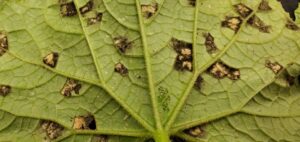Join Rutgers Cooperative Extension and the Monmouth County Board of Agriculture for a FREE twilight walking tour of some of the current research projects that are happening at the Rutgers Specialty Crop Research and Extension Center in Cream Ridge.
Rutgers Specialty Crop Research and Extension Station Field Tour
September 20, 2022
5:30 – 7:00 pm
FREE
Location: 283 Route 539, Cream Ridge, NJ 08514
Pesticide License Recertification Credits Available
- 1 credit CORE (BASIC SAFETY & HANDLING)
- 2 credits PP2 (PRIVATE APPLICATOR CATEGORY)
- 2 credits 10 (DEMONSTRATION & RESEARCH)
- 2 credits 1A (AGRICULTURAL PLANT)
To register or for more information, contact Rutgers Cooperative Extension of Monmouth County at 732-431-7260 or email Catherine.vanBenschoten@co.monmouth.nj.us
Agenda
5:30 to 6:00 pm: Welcome, Sign-in, and Refreshments
6:00 to 6:15 pm: “Integrated Pest Management for Beginning and Experienced Farmers”
- Brendon Pearsall – Beginner Farmer Program Coordinator, Rutgers, NJAES, RCE
6:15 to 6:30 pm: “Low Input Native and Ornamental Plant Trials”
- Bill Errickson – Agriculture & Natural Resources Agent III – Monmouth County Rutgers, NJAES, RCE
6:30 to 6:45 pm: “Growing Ginger and Turmeric in in Moveable High Tunnels”
- Bill Errickson – Agriculture & Natural Resources Agent III – Monmouth County Rutgers, NJAES, RCE
6:45 to 7:00 pm: “Honey Bee, What’s in Your Pollen? Residuals and Pollen Diversity in Relation to Colony Health”
- Chelsea Abegg – NJAES – ANR Soils and Plant Technician
7:00 to 7:30 pm: Sign-out for Credits, Course Evaluations
7:30 pm: Monmouth County Board of Agriculture Meeting
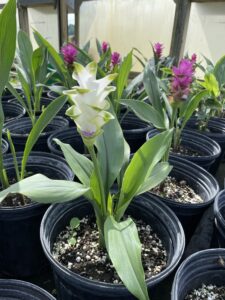
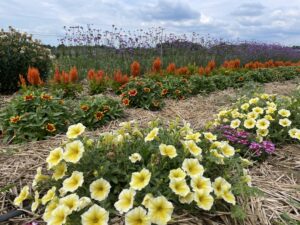
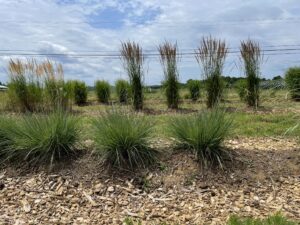
Descriptions of Presentations
6:00 to 6:15 pm
“Integrated Pest Management for Beginning and Experienced Farmers”
Brendon Pearsall – Beginner Farmer Program Coordinator, Rutgers, NJAES, RCE
RU Ready to Farm: Getting Rooted in the Garden State – The Rutgers NJAES Beginner Farmer Training Program has just concluded its first year of hands-on training at the Specialty Crop Research and Extension Center in Cream Ridge. The program team will discuss the process of leading 12 first-time farmers through the planning and production of a 46-share CSA program. This year featured many challenges, and the students got to put their IPM training to good use as they were confronted with various pest and disease issues. We will highlight some of the techniques used to minimize the need to spray, including mechanical controls, attracting beneficial insects, and frequent scouting.
6:15 to 6:30 pm
“Low Input Native and Ornamental Plant Trials”
William Errickson, M.S. – Agriculture & Natural Resources Agent III – Monmouth County Rutgers, NJAES, RCE
Selecting native and ornamental plants that are well-adapted to the growing conditions in our region can greatly reduce pest and disease issues in the landscape, leading to a reduction in pesticide use, while enhancing the ecosystem services that are provided. This presentation will showcase heat and drought tolerance evaluations of field-grown native ornamental grasses, sun and shade tolerance of container-grown native azaleas, and recent introductions to the All America Selections ornamental plant program. Specific pest and disease challenges will be discussed in addition to managing abiotic summer stress while limiting the amount pesticides, fertilizers, and water required in the landscape.
6:30 to 6:45 pm
“Growing Ginger and Turmeric in in Moveable High Tunnels”
William Errickson, M.S. – Agriculture & Natural Resources Agent III – Monmouth County Rutgers, NJAES, RCE
Fresh baby ginger and turmeric are high-value specialty crops that can be produced in high tunnels in NJ. While ginger is generally a reliable low-input crop, it can be susceptible to soil-borne pathogens if specific cultural practices and crop rotations are not followed. This project evaluates ginger and turmeric production in moveable high tunnels in comparison to field grown ginger. Specific disease problems, controls, and cultural practices will be discussed.
6:45 to 7:00 pm
“Honey Bee, What’s in Your Pollen? Residuals and Pollen Diversity in Relation to Colony Health”
Chelsea Abegg – NJAES – ANR Soils and Plant Technician
Something is happening to the honey bees that New Jersey blueberry and cranberry crops depend on and now beekeepers are raising their service fees or refusing to bring their bees to New Jersey crops. With colony health declines during and shortly after NJ pollination services, we will discuss what factors could be influencing these colony declines and how Rutgers is working to the solve the problem.
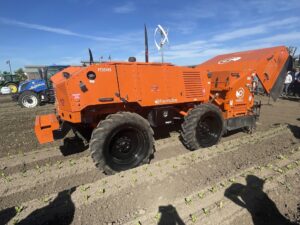
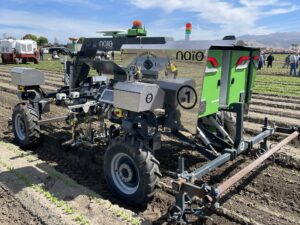 Weed management in vegetables can be difficult due to a shrinking labor pool, which is becoming more costly to source, and a lack of effective herbicides. Research and extension efforts must focus on integrating novel weed technology into current crop production systems. Autonomous and semi-autonomous robotic weed control technology has been implemented by some vegetable growers, mainly in the Western US, but is not universally available to or adapted by many producers. This survey is designed to new tools of interest (e.g. precision sprayers or cultivators, electrical weeders, drones, etc.) for managing weeds in cole crop and leafy green systems as well as the environmental, physical and economic barriers to adoption. The results of this survey will benefit vegetable growers by enabling the research team to develop relevant and realistic research efforts informed by the needs of and constraints faced by our local stakeholders. Specifically, we will use survey data to develop a multi-regional USDA grant proposal to bring grower-specified technology to each our states for evaluation and demonstration under a variety of commercial conditions and provide growers with an economic assessment of their performance relative to current best management practices.
Weed management in vegetables can be difficult due to a shrinking labor pool, which is becoming more costly to source, and a lack of effective herbicides. Research and extension efforts must focus on integrating novel weed technology into current crop production systems. Autonomous and semi-autonomous robotic weed control technology has been implemented by some vegetable growers, mainly in the Western US, but is not universally available to or adapted by many producers. This survey is designed to new tools of interest (e.g. precision sprayers or cultivators, electrical weeders, drones, etc.) for managing weeds in cole crop and leafy green systems as well as the environmental, physical and economic barriers to adoption. The results of this survey will benefit vegetable growers by enabling the research team to develop relevant and realistic research efforts informed by the needs of and constraints faced by our local stakeholders. Specifically, we will use survey data to develop a multi-regional USDA grant proposal to bring grower-specified technology to each our states for evaluation and demonstration under a variety of commercial conditions and provide growers with an economic assessment of their performance relative to current best management practices.
